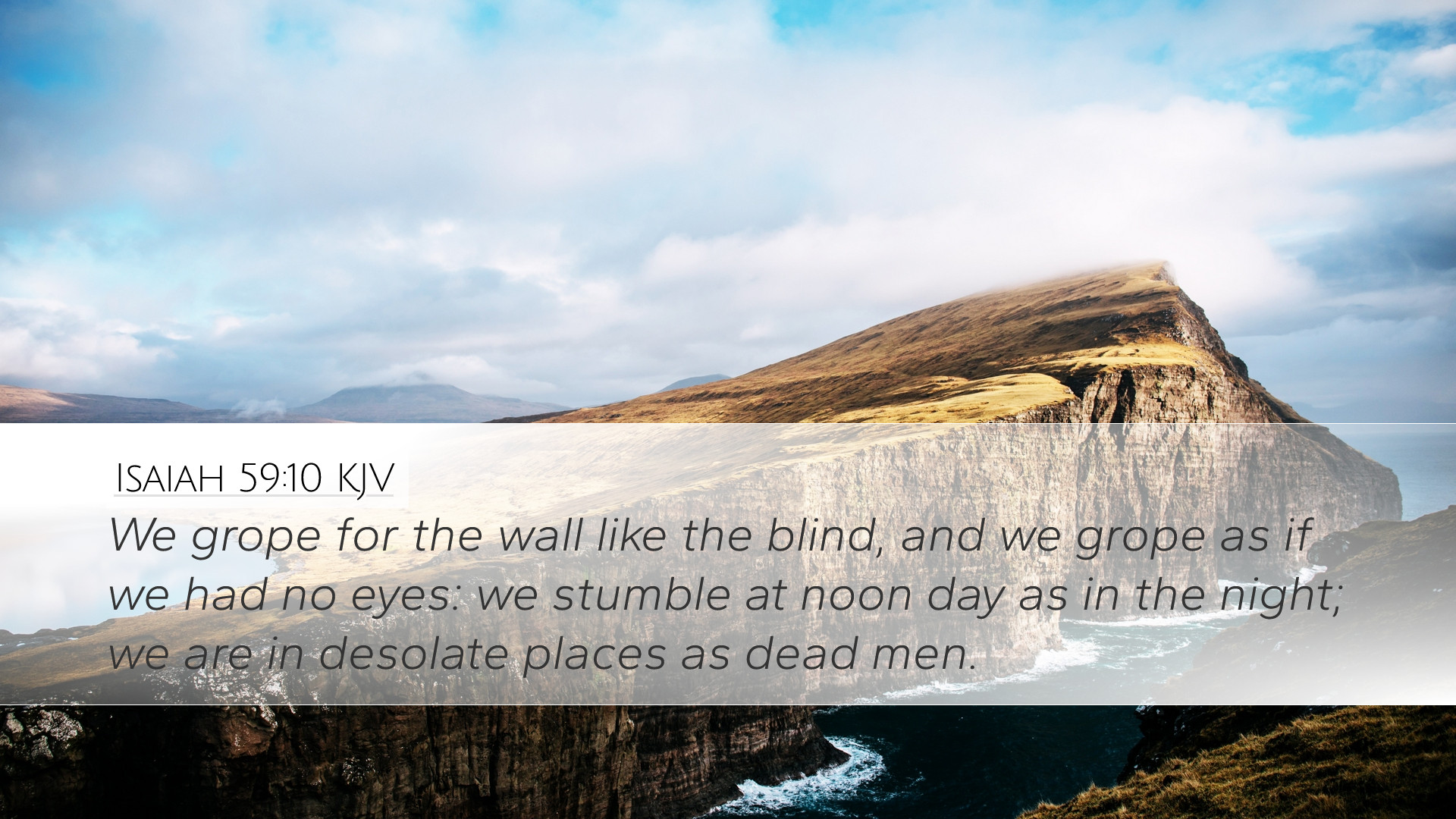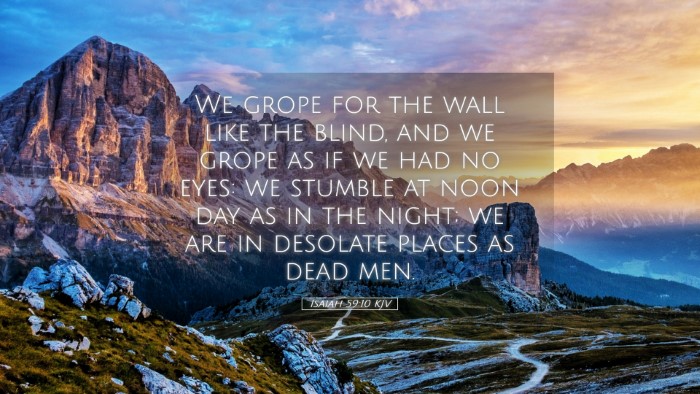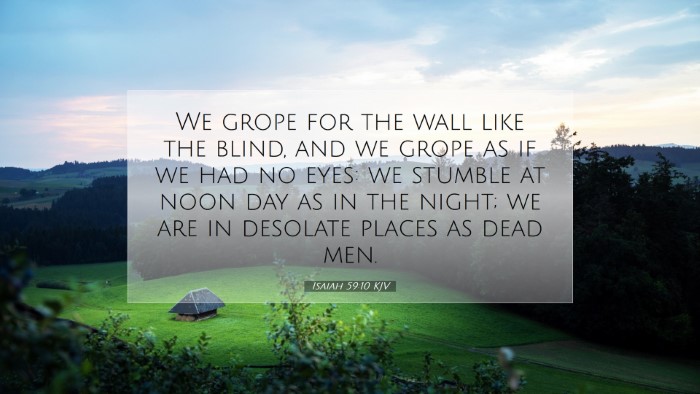Commentary on Isaiah 59:10
Verse Text: "We grope for the wall like the blind, and we grope as if we had no eyes: we stumble at noonday as in the night; we are in desolate places as dead men." (Isaiah 59:10, KJV)
Contextual Background
Isaiah 59 serves as a poignant reflection on the state of the people of Israel during a time of spiritual depravity and moral decline. The prophet Isaiah vividly describes the pervasive darkness enveloping the nation due to their sins and failures to uphold justice.
Exegesis of the Verse
This verse uses striking imagery to communicate the profound spiritual blindness and moral confusion experienced by the people. The metaphors of groping in darkness encapsulate their desperate condition, emphasizing a lack of clarity, purpose, and direction.
Insights from Matthew Henry
Matthew Henry highlights that in this verse, the people are depicted as wholly lost in their sins. He comments on the severity of their spiritual blindness, where even their attempts to navigate their moral landscape result in failure. They are like those who stumble during the brightest part of the day, which signifies a great contradiction – their unawareness of their own blindness reflects their deep spiritual depravity.
- Spiritual Blindness: Henry emphasizes that their groping for the wall represents a feeble endeavor to find security and guidance in a world devoid of God’s light.
- Desolation: He points out that the imagery of being in 'desolate places' communicates a state of spiritual barrenness, akin to that of the dead, suggesting that they are cut off from the life-giving presence of God.
Insights from Albert Barnes
Albert Barnes offers a theological perspective on this passage by noting that the condition described is one of utter helplessness. He notes that people wandering about in blindness, even at noon, illustrates a striking disparity between the clarity of the sun and their inability to see – a metaphor for God's offering of enlightenment that they have rejected.
- Stumbling at Noonday: Barnes remarks that stumbling in the light of day implies a refusal to accept God’s truth, which is available to them and represents a major form of culpability.
- Desolate Places: He further explains that the reference to desolation reflects the state of the human heart devoid of divine guidance. Accordingly, it immerses individuals in spiritual death.
Insights from Adam Clarke
Adam Clarke’s commentary elaborates on the metaphor of blindness, emphasizing the idea that sin blinds individuals to their condition and leads them to grapple helplessly in moral darkness. Clarke notes that such blindness is a consequence of persistent disobedience and rebellion against the Lord.
- Groping for the Wall: Clarke interprets the act of groping for the wall as indicative of a soul's desperate search for stability amid chaos, an analogy for those searching for comfort in a life of sin.
- Spiritual Desolation: He describes the desolate places as metaphorical for lives without purpose or hope, leading to a state akin to spiritual death.
Theological Implications
The implications of Isaiah 59:10 are profound for understanding the nature of sin and its effects on humanity. The verse illustrates the consequences of turning away from God: spiritual darkness and moral ambiguity lead to a collective state of helplessness.
- Human Condition: Modern readers can relate this to the pervasive confusion found in contemporary society, where moral truths are obscured by relativism, leading to spiritual desolation.
- The Call to Repentance: The text serves as a clarion call for individuals and communities to recognize their spiritual blindness and to seek God’s light, emphasizing the necessity of repentance and return to divine truth.
Pastoral Application
This passage invites pastors and church leaders to acknowledge the realities of spiritual blindness prevalent in congregations and communities. It is essential to address the condition of hearts that wander without vision and to guide them toward the light of Christ.
- Encouragement for the Church: Pastoral care should focus on bringing the community back to a place of spiritual awareness and dependence on God. Teaching and preaching that align the congregation with God’s truth will bring clarity to their moral confusion.
- Societal Engagement: Engaging with society's moral and spiritual crises through discipleship, teaching, and outreach can counteract the effects of spiritual blindness.
Conclusion
Isaiah 59:10 serves as a poignant reminder of humanity’s vulnerability to spiritual blindness when separated from God. The insights from the commentaries highlighted in this exposition emphasize the need for God’s light and truth in navigating the moral complexities of life.


